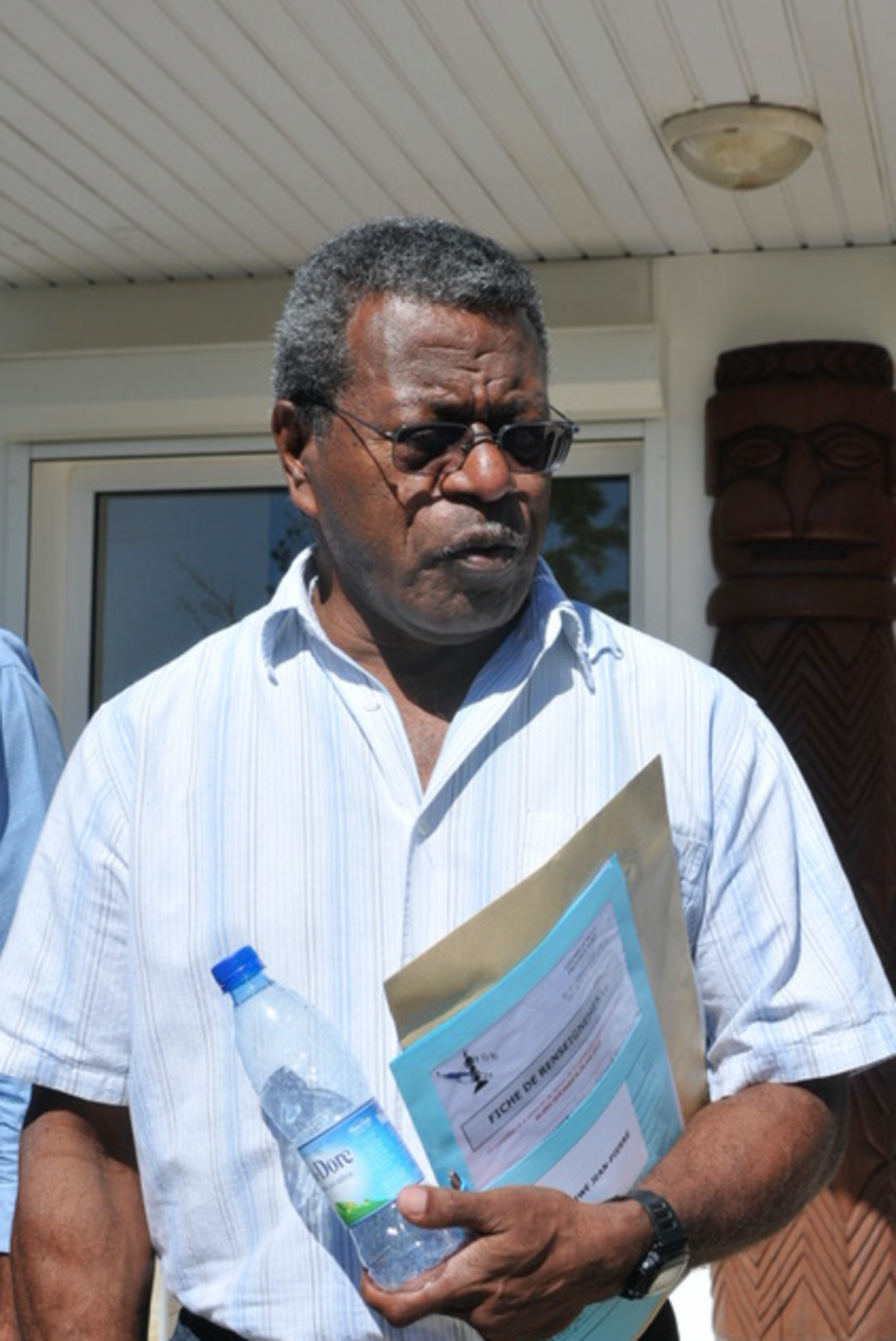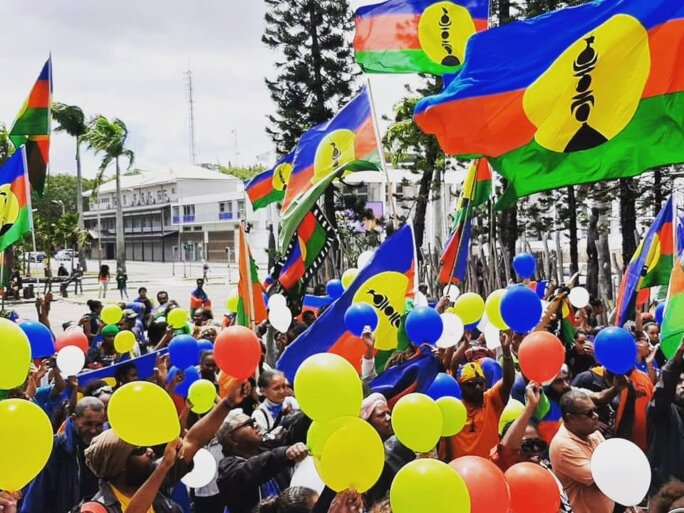On October 4th, the inhabitants of the semi-autonomous French south-west Pacific Ocean territory of New Caledonia are to vote in a referendum on whether they want full independence.
It is the second referendum in two years, the 2018 vote having resulted in a score of almost 57% in favour of remaining under the rule of mainland France, which lies 11,000 kilometres away. A total of three referendums on independence were allowed for under the terms of the 1998 Nouméa Accord, negotiated between the French government and local political parties, adding to the uncertainty of the outcome of Sunday’s vote.
The pro-independence movement is essentially driven by parties of the indigenous Kanak population, who represent the majority group among the archipelago’s 271,000 inhabitants. The most active anti-independence movement is made up of inhabitants of European (and mostly French) origin, called “Caldoches”, including the descendants of those who settled in the islands after they were annexed by France in 1853. These are concentrated in the economically dominant South province, while the Kanak population are the majority in the poorer North and Loyalty Island provinces.
The Nouméa Accord, which handed greater political power to Kanak representatives, was itself the ultimate result of a bitter and bloody campaign for independence in the 1980s which reached a climax in 1988 in a hostage-taking of French gendarmes by Kanak rebels. That siege, in a cave on the local island of Ouvéa, ended with the deaths of 19 of the rebels, and two gendarmes. Less than two months later, the so-called “Matignon Agreements” were concluded in Paris in June 1988, which were the first to give economic and institutional rights to the Kanak population, and which paved the way for the 1998 Nouméa Accord.
If the high tensions between the Kanaks and the population of European descent have been lessened since then, frustrations and resentment remain potentially explosive just under the surface, to a backdrop of vast inequalities in income distribution, acute unemployment, educational failure and youth crime. Imports of goods and services are more than double those exported and, according to a CIA fact sheet, French state aid accounts for more than 15% of GDP.
Despite an overall ageing of the archipelago’s population since the 1980s, explained by an increasing emigration of young qualified adults and students seeking higher education courses, and also a fall in the birthrate, around half the population are aged under 31.

Enlargement : Illustration 1

Jean-Pierre Djaïwé is a leading Kanak pro-independence politician, a leading figure of Palika, the principal pro-independence party in New Caledonia and which is affiliated to the Kanak and Socialist Liberation Front, the FLNKS. A former vice-president of the council of the Nord province in the north of the mainland (where the pro-independence movement has a political majority), he is now a member of the New Caledonia local government, and part of the National Union for Independence socialist alliance. His responsibilities include environmental policy, sport, security and crime prevention.
In the interview below with Mediapart’s Joseph Confavreux ahead of next Sunday’s referendum, Djaïwé, 65, presents an upbeat tone, claiming that the pro-independence militants are successfully mobilising sections of the Kanak population – although he recognises that reversing the high abstention rate recorded in the 2018 consultation remains a major challenge for his movement. “The train of independence is on the move,” he says, and argues that the bitter divide among the population can only be resolved by “accession to full sovereignty”.
-------------------------
Mediapart: How is the referendum campaign unfolding?
Jean-Pierre Djaïwé: I hear talk that the campaign is more tense than that in 2018. This strategy of tension is not caused by us. It is our opponents who are using this to create a climate of fear that they hope will be favourable to the status quo. We, the independence movement, remain serene. What is emerging is a strong mobilisation. There are increasing initiatives, at a grass-root level, at the university, among the young, among women, in the villages, in the [town] neighbourhoods. The nationalist and citizens’ committees of the North all gathered together at [the north-east commune, or municipality, of] Pouébo on September 24th, the date when France took possession of New Caledonia [in 1853], forming a long procession bearing our flag. People are taking up our ideas. We have citizens’ debates in environments where we previously didn’t hold ground.
Mediapart: Has the coronavirus pandemic disrupted campaigning?
J-PD: Here, the virus isn’t circulating. The few cases that occurred and which led to temporary confinements are imported cases that were detected sufficiently within time. A 15-day quarantine is mandatory for every person arriving. It is a success for which the credit should be given to all the authorities, who coordinated between themselves – despite differences of appreciation and incidents along the way – to engage in a common front against the coronavirus: the New Caledonia government, the Congress, the three provinces, the customary Senate.
The initial lockdown, which we came out of, had an impact on economic activity. Because of the reduction in flights, the sectors linked to tourism are particularly affected. This health crisis has revealed the impasse of the colonial trading-post economy founded on import-export, and underlined the importance of our political and economic sovereignty, founded on a local industrial and economic fabric that should be protected.
The “loyalists” [those in favour of remaining under French governance] use a loan that was provided by the French Development Agency to say that without France the country could not have faced up to the crisis. But it was not a gift, it was a loan, the interest rate of which is disputable, and which increases our dependency upon France. If the country was independent, it would have been entirely able to borrow, if necessary, at more interesting rates on the international market.
Mediapart: How do you view the role of the French state in this campaign?
J-PD: I have already said that the French state is weighing in favour of the “No” [to independence] vote. Why? Because it unilaterally changed the rules of the ballot in 2018 – about which there was no dispute – by authorising the colonial rightwing parties to use the French flag and national anthem, which contradicts the electoral code. The UNI took out legal proceedings [against the authorisation]. Our complaint was dismissed.
But the affair is yet to be judged on its basics. The [French] state has pledged to provide a substantial document about the consequences of the “Yes” and “No” [vote results] and, in that aim, to hold bilateral talks with the independence movement. It didn’t keep its word, pretexting the health crisis and the [early July] government reshuffle. The modification of the rules of the ballot and its failure to keep its word infers that the French state intends to weigh on the choice of the citizens of the country [New Caledonia] in favour of “No”.
Mediapart: Do you have reservations about the sincerity of the referendum conditions?
J-PD: In these conditions, the sincerity of the ballot is placed in question, and we reserve for ourselves the possibility, as the law allows us, to dispute the result.
Mediapart: Are you worried that the abstention rate will be higher than in 2018?
One must always fear that. In our campaign, we have targeted the abstentionists of 2018. There are a few signs that lead one to believe that turnout should be greater, notably because of the Socialist Party which, this time around, has reversed its previous position of not participating. We’ll see.

Enlargement : Illustration 2

Mediapart: How can the pro-independence movement obtain a better score than two years ago?
J-PD: It is possible to inverse the balance of power. We must seek a still larger turnout than in 2018, targeting an 85% “Yes” vote in the pro-independence districts, and a score of 30% in those that are [mostly] anti-independence. That is possible if we explain our [political] project and if we really mobilise ourselves. There are also 6,506 new voters to convince, notably young people who already, in 2018, demonstrated their capacity to turn out for the “Yes”.
What we see is that we are connecting beyond our own ranks with a population that traditionally was not won to our cause. Also, even though its leader has declared that on a personal level he will vote “No”, the Éveil océanien [party, representing the interests of the Wallisian and Futunan ethnic population, the third-largest in New Caledonia] is not advising on which way to vote. That is an element to be taken into account, just like the positive evolution of part of the local economic world should also be taken into account, notably the industrial sector, in favour of greater economic sovereignty. Sovereignty is not only a matter for the Kanak people, it has become a matter for all Caledonians.
Mediapart: The pro-independence movement lost the last referendum principally with the result in the capital Nouméa and its suburbs. What have you done to address that?
J-PD: In Nouméa, there were practically 10,000 who abstained. Abstention is traditionally stronger in the poorer districts than the southern districts. The colonial Right managed its full score, not us – we have a greater margin for progression. Our project is one of political and social emancipation, more equitable, more just, more fraternal, which corresponds with the expectations of the most impoverished populations. To win, you must convince.
Mediapart: Is the pro-independence movement sufficiently united to be able to win?
J-PD: Yes, we are. The campaign leadership team is composed of a representative of the Caledonian Union and a representative of the National Union for Independence. At a grass-roots level, the Nationalist and Citizens’ committees bring together all the parties of the Kanak and Socialist Liberation Front [FLNKS] and sympathisers. It is they who energize the campaign in each commune [municipality]. The Labour Party is leading a sperate campaign. Each must assume their responsibilities.
Mediapart: If the “No” to independence vote wins again this time round, will you seek a third referendum?
J-PD: Our position has always been clear on the issue, that has not changed. The [1998] Nouméa Accord allowed for three referendums, We will go all the way to the end of the three if we don’t snatch victory on October 4th. Our political opponents would like to exempt themselves from that, in order to open talks with us about [creating] an umpteenth statute within the [French] republic. To the degree to which the country has gone, there is nothing else to discuss other than independence and its terms.
The loyalists don’t want that discussion. The train of independence is on the move and they permanently pull on the brakes, looking into the rear-view mirror. Each of them comes up with unrealisable propositions to avoid a third consultation. If we want to put an end to the divide between pro- and anti-independence supporters, there is just one way out: accession to full sovereignty.
-------------------------
- The original French version of this interview can be found here.
English version, with added reporting, by Graham Tearse


